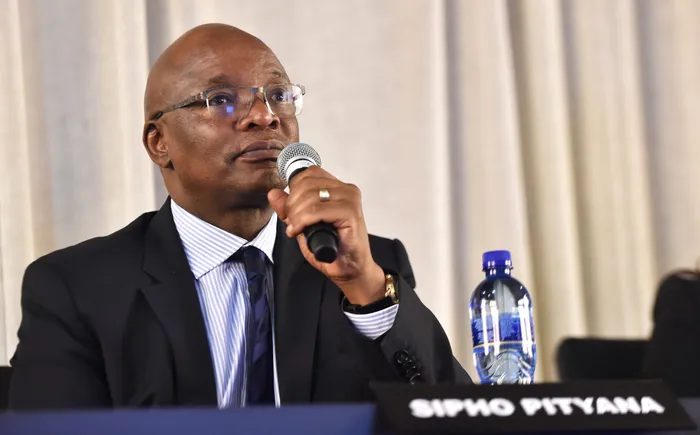Sipho Pityana calls for investigation into SA Reserve Bank’s independence after Absa debacle
EXCLUSIVE

Former Absa board member Sipho Pityana has raised serious concerns regarding the independence of the South African Reserve Bank (Sarb)
Image: Itumeleng English/Independent Newspapers
Former Absa board member Sipho Pityana has raised serious concerns regarding the independence of the South African Reserve Bank (Sarb), urging for a formal investigation into what he describes as "cosy relationships" between key figures in the banking sector.
Pityana's remarks come on the heels of a Pretoria High Court ruling that has cast doubt on the conduct of Sarb’s Prudential Authority (PA) during his controversial nomination process as chair of Absa Bank in 2021.
The court found that the PA acted unlawfully by adopting an informal process to review Pityana’s nomination, as prescribed by the regulations in place under the Banks Act.
This ruling not only vindicated Pityana but also brought to light the opaque interactions between the regulatory body and external parties.
Pityana's legal battle began when he sought a declaratory order against the PA, claiming they had operated outside the legal framework established for such considerations.
The PA controversially consulted with third parties regarding his suitability for the chairperson role, particularly following inquiries into his resignation from AngloGold Ashanti amid allegations of sexual harassment - claims he firmly denies.
The court’s judgment, delivered by Judge Flatela Luleka, established that the PA had indeed overstepped its bounds by failing to follow established protocols, thus denying Pityana the opportunity to contest objections to his appointment.
“The [PA] acted unlawfully and in excess of its power per the Banks Act 94 of 1990 by engaging in an informal process with the [Absa Group] and [Absa Bank] in connection with the nomination of [Pityana] as chairperson of the [Absa Group] and [Absa Bank’s] board of directors, and in particular by notifying the [Absa Group] and [Absa Bank] of its objection, alternative intention to object to [Pityana’s] nomination,” read the judgment.
Speaking exclusively to Business Report on Wednesday at his office in Johannesburg, Pityana said the court ruling was a reminder to all, especially those in powerful positions, that they cannot disregard the rule of law.
He said the judgement raised a number of new questions in terms of transparency, good governance and ethical conduct in the financial sector’s regulatory environment, as well as accountability when laws are broken.
“I think that this is a case where the Reserve Bank has revealed itself to be capable of being manipulated by an outside person, that Maria Ramos was. And this stems from widely known relationships between her and maybe her family with the Reserve Bank leadership and or the National Treasury leadership, because it's basically her pushing this,” Pityana said.
“So we have a leadership in the governors of the Reserve Bank who are capable of being ordered around by Maria Ramos. This thing happened not because the governors of the Reserve Bank didn't know what the Banks Act says about these processes. They crafted a different procedure in order to make good to Maria Ramos' desires.
“What does accountability look like when a leadership of the Reserve Bank entrusted with an independent and powerful institution that the Reserve Bank is has been found to have failed to act without favour or prejudice? So this thing about the independence of the Reserve Bank is a weighty matter.”
Ramos, now serving as chair of Standard Chartered, has not responded to requests for comment following the judgment. Meanwhile, the PA has signalled that it is currently reviewing the judgment before issuing a formal statement.
“The PA is studying the judgement and will comment on the matter at an appropriate time,” said PA spokesperson, Thoraya Pandy.
Pityana said what was concerning was the fact that the regulator’s excesses may have compromised its pivotal role as a trusted custodian of the integrity of the financial services sector.
He said he had taken the Herculean task of taking the PA to court as a matter of principle because of the injustice meted out to him and also because board members should not be anyone’s lackey as independent directors.
The former Absa director further articulated the personal toll the legal battle has exacted on him and his family, acknowledging the Herculean nature of challenging a powerful institution.
“But it's not something I'm prepared to allow to shape my destiny, to be a preoccupation for me. I'm not pursuing Maria, that would be small. The big thing for me is that our leadership wakes up to the fact that you can't give the Reserve Bank a blank check,” Pityana said.
“There are too many of these instances about the Reserve Bank and its transgressions that, surprisingly for me, have not gotten the Minister of Finance, but importantly, Parliament's relevant structures to actually prove and find out what the hell is going on with the Reserve Bank.”
Pityana's legal battle extends beyond this ruling; he is also contesting his removal from the Absa board through separate legal proceedings.
“A court of law has decided that, indeed, the conduct of the Reserve Bank was unlawful. If the Reserve Bank is found to have acted unlawfully, it would mean we as the board of Absa also acted unlawfully. That's the reality,” Pityana said.
“The moment now for the pig to fry in its own fat. This is their logic.”
In response to Business Report, Absa also said it was studying the judgment.
“We are currently studying the judgement handed down on Friday the 13th June pertaining to Mr Pityana’s application for a Declarator regarding the process followed by the Prudential Authority in relation to section 60 of the Banks Act (assessing the requirements for directors of banks),” it said.
“For awareness, Mr Pityana’s application for the Court to review the Absa Board’s decision to remove him as a director is still pending before the High Court.”
BUSINESS REPORT